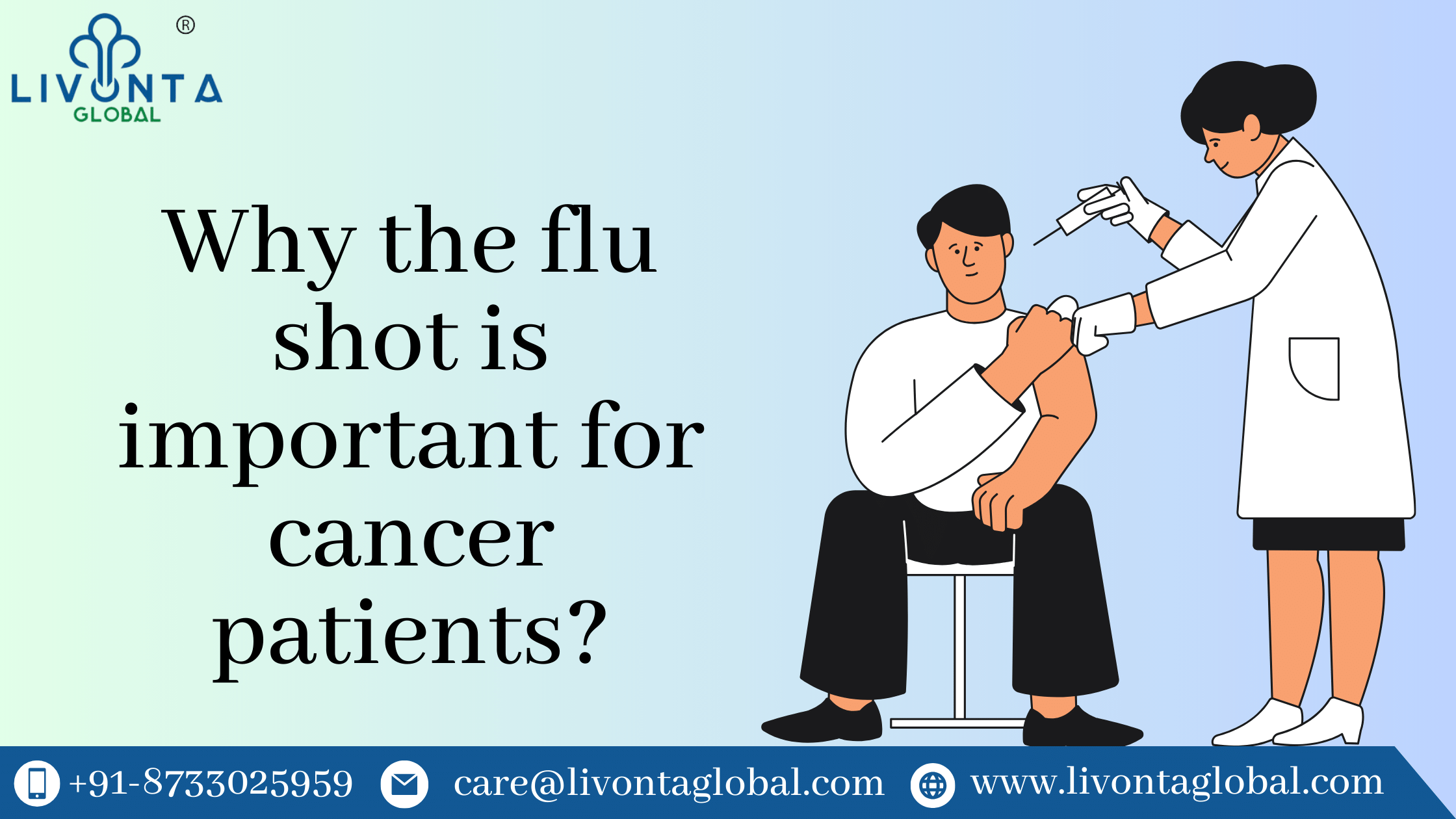
Why the flu shot is important for cancer patients?
Did you know that in particular, one of the worst flu seasons of the last ten years was brought on by a huge increase in respiratory syncytial virus (RSV) and an earlier-than-expected outbreak of the flu last year? Between 27 million and 54 million cases of influenza were reported by the Centres for Disease Control and Prevention (CDC) in the United States last year, resulting in 300,000 to 650,000 hospitalizations and up to 58,000 fatalities.
Due to social isolation, masking, and other preventive measures, fewer people contracted the virus during the first two years of COVID-19, making them more susceptible to contracting the illness once pandemic precautions waned. This is one of the reasons why last year’s flu season was so severe. That’s a key issue that infectious disease specialists are stressing when they advise everyone to get the flu shot as soon as it becomes available this year, even cancer patients. In fact, the doctors of the best Cancer treatment India were careful about the importance of flu shots for cancer patients.
Why cancer patients should get the flu shot?
The flu is a respiratory infection that spreads easily and affects the nose, throat, and occasionally the lungs. It is brought on by influenza viruses. Without medical intervention, influenza is typically curable. However, it might trigger considerably more severe symptoms in other people.
The flu can result in pneumonia, respiratory failure, encephalitis (brain inflammation), and other life-threatening consequences. The CDC and national health authorities advise that, with very few exceptions, everyone 6 months of age and older receive the flu shot each year. The virus is more contagious among people 65 years of age and older, as well as newborns, young children, and people with impaired immune systems, such as cancer patients. Pregnant women and persons who have a chronic illness, such as diabetes or asthma, are two more high-risk populations.
Since their immune systems have already been compromised by cancer therapies like chemotherapy and radiation therapy, cancer patients who contract the flu may experience severe problems. Medical specialists strongly advocate flu vaccination for cancer patients as well as those who interact with them. The most crucial action cancer patients, their carers, and their families can take to prevent the flu, which is easily spread through coughing, sneezing, or even touching people, is to get vaccinated. In actuality, the influenza vaccination comprises either an inactivated virus or viral antigens when administered as a shot. Although the shot may result in a little fever and some pain at the injection site, the flu is not actually present. Patients can get it from top cancer hospitals in India.
Timing the flu shot around cancer treatments
- The flu vaccine should be obtained as soon as possible for cancer patients and long-term survivors who are not undergoing active treatment.
- But there are some restrictions.
- When to get the flu shot is something that patients who have recently been diagnosed, are receiving treatment for, or are about to begin receiving therapy, should discuss with their doctor.
- This is due to the possibility of immune system suppression or damage from several cancer treatments, particularly chemotherapy, which reduces the efficacy of vaccines.
- Those who have been diagnosed with blood diseases like leukemia or lymphoma may also not benefit fully from the vaccination, but they should still get the flu shot unless they have already experienced major side effects.
Should you get the flu, RSV, and COVID-19 vaccines together?
The flu shot serves the same objective as the COVID-19 shot. Reducing hospitalizations and preventing fatal consequences are the objectives. Therefore, even if a person tests positive for COVID or the flu but only exhibits mild symptoms, the vaccine has still been effective. It also helps to keep in mind that the rate at which symptoms appear is one method to distinguish between the flu and COVID-19.
This flu season, make sure to:
- Regularly wash your hands
- Avoid congested regions.
- Avoid those who are coughing or sneezing.
Additionally, if a cancer patient has come into contact with a sick person, they should call their doctor right away. Antibiotics may be prescribed by them to help prevent the flu from spreading.
Cancer Treatment
